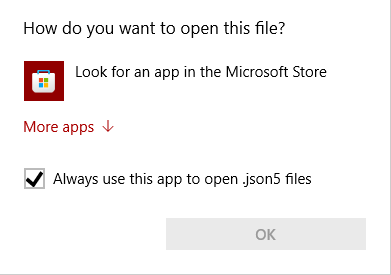this post was submitted on 14 Jan 2024
143 points (100.0% liked)
technology
22683 readers
1 users here now
On the road to fully automated luxury gay space communism.
Spreading Linux propaganda since 2020
- Ways to run Microsoft/Adobe and more on Linux
- The Ultimate FOSS Guide For Android
- Great libre software on Windows
- Hey you, the lib still using Chrome. Read this post!
Rules:
- 1. Obviously abide by the sitewide code of conduct. Bigotry will be met with an immediate ban
- 2. This community is about technology. Offtopic is permitted as long as it is kept in the comment sections
- 3. Although this is not /c/libre, FOSS related posting is tolerated, and even welcome in the case of effort posts
- 4. We believe technology should be liberating. As such, avoid promoting proprietary and/or bourgeois technology
- 5. Explanatory posts to correct the potential mistakes a comrade made in a post of their own are allowed, as long as they remain respectful
- 6. No crypto (Bitcoin, NFT, etc.) speculation, unless it is purely informative and not too cringe
- 7. Absolutely no tech bro shit. If you have a good opinion of Silicon Valley billionaires please manifest yourself so we can ban you.
founded 4 years ago
MODERATORS
you are viewing a single comment's thread
view the rest of the comments
view the rest of the comments

They should make a Linux that's just Windows 7
Just about every single window manager improvement Windows has seen since Vista was introduced in Gnome first then later cribbed by Microsoft.
Or KDE
Here's a guide. I don't know if it still works, but regardless making Linux Mint look like Windows 7 shouldn't be too hard.
That's the beauty of Linux, it isn't "they should make" it's "you can make"!
no i cant, i suck ass at programming
It isn't just programming. There are literally hundreds of desktop environments to choose from which let you customize things much more in depth than windows can.
XFCE for example would let you put your task bar dead center in the middle of your monitor if you wanted to, no programming required. Another reply links to a guide that requires no programming.
Just run a distro with KDE, it's a lot like old school windows.
Any distro with KDE + WINE, and you basically have Windows 7, but Linux.
Only real difference is if you want to interact with devices that need special drivers (basically, anything that isn't a USB HID device), you gotta use native Linux apps for those. Example would be reflashing a phone's firmware using the proprietary SoC bootrom mode, or trying to use a DJ controller with a Windows program via WINE.
Usual disclaimer: Linux is not Windows, and things will not behave exactly the same. For example, installing software is done through a software repository instead of going to a random website and downloading an exe. When installing software from a repository, it will get updated along with the rest of your system. Think: an app store, but before app stores existed. Also, the only time you have to reboot after an update is when updating the kernel, and you won't get that annoying thing where Windows Update has to take forever to apply an update when shutting down since Linux will give permission to write to files that are currently in use.
Someone should do some testing where they sit down with a few dozen windows users and have them "playtest" linux to figure out what the snags are for onboarding, and what is generally meant by "make it work like windows" to them. Certainly there are some things linux objectively does better, even if it isn't immediately intuitive coming from windows.
I did this ages ago with a highly non-technical user on Ubuntu 10.04 and the only question I got was "Should I trust the updater?" (yes)
I think the biggest hurdles are:
The biggest hurdles I run into are relating to software management. People expect to google up a .exe and run it.
What ever happened to those "download in ubuntu software centre" orange buttons I was seeing around? That was a damn good idea to bridge the gap while bringing users into the fold by making sure apt is aware of the program being installed, and that it's installed via official channels.
Does Mint still ship gdebi or whatever it was called?
Oh and don't get me started on snap. I always tell people to disable snaps from the software centre if they're installing a *buntu.
People that are installing .exe files from internet searches are beyond the beginner stage and have started getting the Windows brainworms. It's best to get people who never install anything except from the Windows store to move to Linux. The discover store in KDE is essentially the same thing.
I always say that your grandma is the best linux candidate in your life. Linux with XFCE works a hell of a lot more like what she's used to than Windows 10+, won't get viruses, and will do absolutely everything she would want it to, and will be faster than windows on her old laptop.
Set up BTRFS snapshots weekly and if something gets messed up just have her roll back to the latest one.
Linux Mint is already pretty close to Windows 7 out of the box, in terms of how the UI behaves.
Hmm